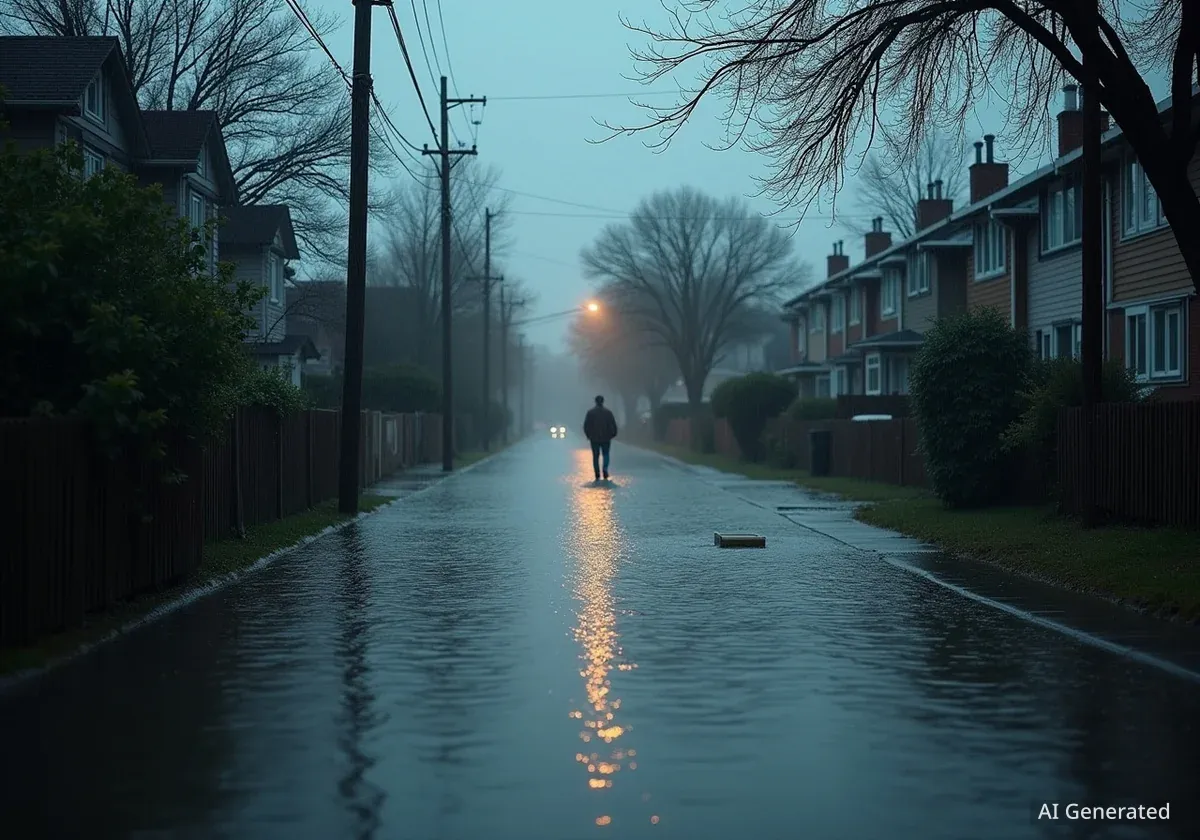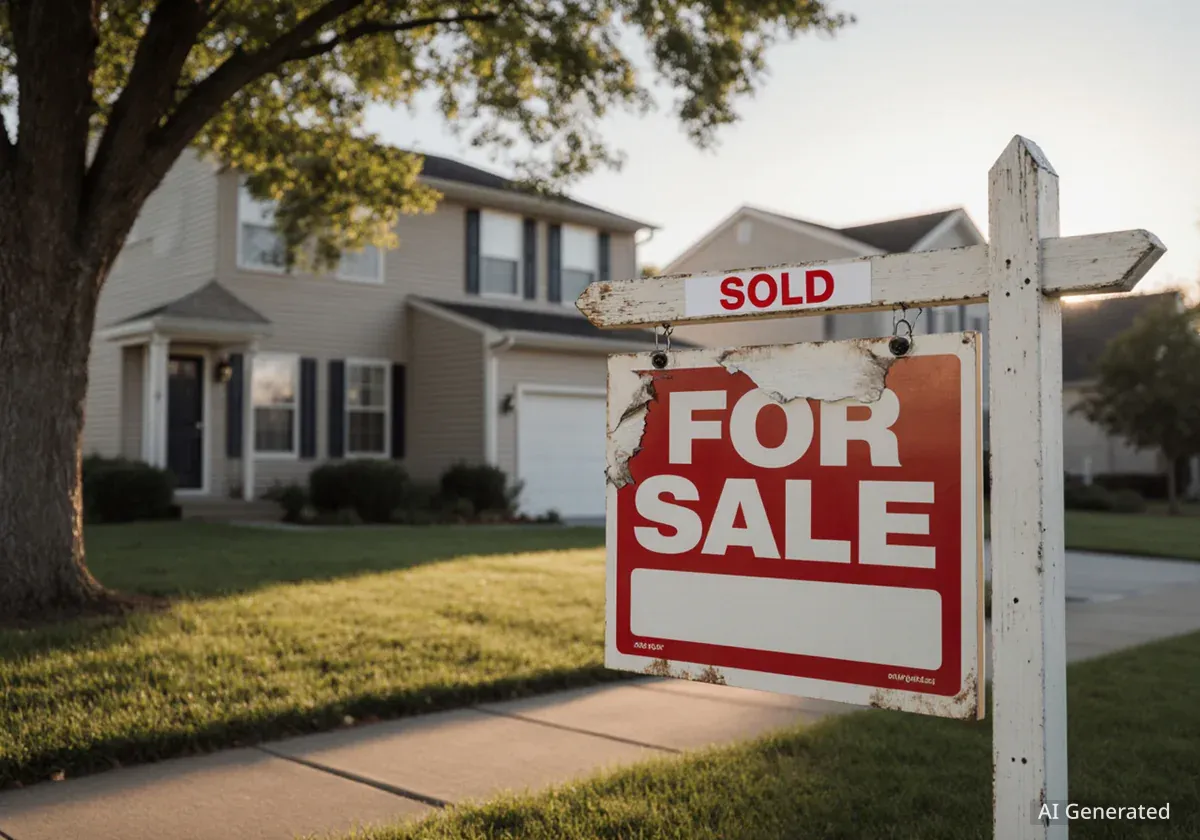A new report reveals that the increasing frequency of climate-related disasters is placing the stability of homeownership for Asian American, Native Hawaiian, and Pacific Islander (AANHPI) communities at significant risk. The findings highlight systemic challenges, including language barriers during emergencies and gaps in financial literacy, that compound the devastation of these events.
The 2025 State of Asia America Report, a data-driven analysis from the Asian Real Estate Association of America (AREAA), examines the profound impact of natural disasters on these communities, detailing both the vulnerabilities and the remarkable resilience shown in the face of adversity.
Key Takeaways
- Climate-related disasters have increased in frequency by 83% since 1980, directly threatening AANHPI homeowners.
- The report highlights significant communication gaps, such as the failure to provide emergency alerts in necessary languages during major events like the Eaton fires.
- Many AANHPI homeowners face challenges with mortgage and insurance literacy, leaving them financially vulnerable after a disaster.
- Despite hardships, the report documents powerful stories of community resilience and mutual support in recovery efforts.
A Surge in Climate-Related Threats
The stability that homeownership provides is under increasing pressure from severe weather events. The AREAA report underscores a disturbing trend: a staggering 83% increase in the frequency of climate-related disasters since 1980. This surge directly impacts the dream of sustainable homeownership, which the report describes as a "legacy of resilience" for many AANHPI families.
In 2024 alone, the United States experienced 27 separate billion-dollar weather events. These are not abstract statistics; they represent tangible threats to homes, livelihoods, and generational wealth. For the AANHPI community, where over 60% of homeowners rely on mortgages, the financial shock of rebuilding can be overwhelming.
Disasters by the Numbers
The report points to a dramatic escalation in costly climate events. The year 2024 saw 27 separate billion-dollar disasters, a clear indicator of the growing financial and social toll on communities nationwide.
"For AANHPI families, homeownership represents more than just a roof over their heads; it's a legacy of resilience, a foothold in a land where they've built and rebuilt for generations," the report states. It goes on to explain that as these disasters intensify, the very foundation of that stability is being eroded.
Disproportionate Impact on AANHPI Communities
Recent natural disasters have struck areas with significant AANHPI populations, bringing the crisis into sharp focus. The report details several instances where these communities were at the epicenter of devastation, revealing critical failures in emergency response and preparedness.
The Lahaina and Eaton Fires
The 2023 wildfires in Lahaina, Maui, destroyed over 2,000 buildings, the majority of which were residential homes in a community with a large Native Hawaiian and Pacific Islander population. The loss was not just structural but deeply cultural, affecting a place of immense historical significance.
Similarly, the Eaton fires of 2025 in Los Angeles demolished over 16,000 structures, displacing thousands. During this event, a critical vulnerability was exposed: more than 12,000 AANHPI residents needed emergency alerts in languages other than English, but many did not receive them. This communication breakdown left a large segment of the population uninformed and at greater risk during a fast-moving crisis.
The Importance of In-Language Communication
Effective emergency management relies on reaching everyone. The failure to provide multilingual alerts during the Eaton fires highlights a systemic gap in public safety infrastructure. For communities with diverse linguistic needs, access to timely, understandable information can be a matter of life and death.
These events underscore a larger pattern of vulnerability. Beyond language barriers, the report identifies gaps in mortgage and insurance literacy as a major hurdle. Many homeowners are left financially exposed, with inadequate coverage to handle the true cost of rebuilding, which often leads to a secondary financial crisis long after the disaster has passed.
Navigating the Aftermath: Challenges and Resilience
The path to recovery for families affected by these disasters is often long and fraught with obstacles. The rising costs of construction materials and labor present significant challenges for homeowners trying to rebuild, particularly for those who rely on mortgages to finance their homes.
"These events revealed complicated truths about AANHPI homeownership, pointing to the need for greater assistance and climate resilience. Beyond challenges in accessing in-language emergency information, many homeowners also face gaps in mortgage and insurance literacy, leaving them vulnerable to coverage shortfalls and financial instability when disaster strikes—often compounding the crisis with devastating effects."
Despite these immense challenges, the AREAA report also illuminates powerful stories of community strength. In the wake of destruction, members of the AANHPI community have consistently stepped up to lead recovery efforts. These grassroots initiatives have been vital in healing and rebuilding.
Examples of this resilience include:
- Community leaders organizing to offer free childcare for displaced families.
- Volunteers ensuring that rebuilding initiatives incorporate and preserve cultural traditions.
- Neighbors helping neighbors navigate complex insurance claims and federal aid applications.
These acts of compassion and solidarity demonstrate the profound importance of community bonds in overcoming adversity. They serve as a testament to the strength and determination to rebuild not just homes, but entire communities, stronger than before.
A Call for Greater Support and Action
The report, sponsored by REMAX, is positioned as a tool to help real estate professionals and policymakers better understand and serve the AANHPI community. Abby Lee, an executive at RE/MAX Holdings, Inc., emphasized the importance of the data in a press release.
"We're also proud to sponsor the State of Asia America Report, because it's the most comprehensive compilation of Asian American and Pacific Islander real estate, demographic and economic data available today," Lee stated. "The insights in the report can help real estate agents elevate their knowledge and level of service, leading to an even better experience for their buyers and sellers."
Since its founding in 2003, AREAA has focused on promoting sustainable homeownership for the AANHPI community. This latest report serves as both a comprehensive analysis and a call to action. It highlights the urgent need for improved emergency communication systems, greater financial literacy resources, and policies that promote climate-resilient construction and fair insurance practices. By addressing these systemic issues, stakeholders can help ensure that the dream of homeownership remains attainable and secure for all communities, even in an era of increasing climate uncertainty.





